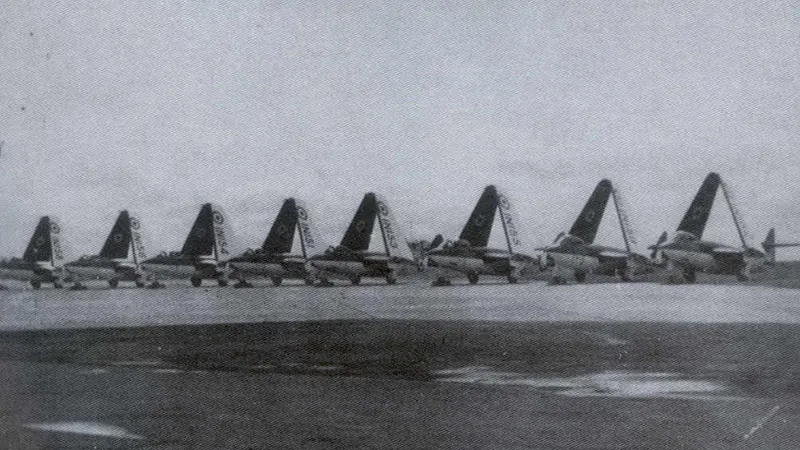-
CENTRES
Progammes & Centres
Location
If Pakistan is willing to escalate and want to respond to the recent surgical strike, what are likely to be its options?

Ten days after the terrorist attack on the Indian Army infantry base in Uri, India made a decisive move and carried out a surgical strike on seven terrorist launch pads across the Line of Control (LoC) on the early hours of September 30. While all the information of the operation is still not out, the Indian Director General of Military Operations spelt out some bare details to say that India did carry out the strike based on precise information on the terrorists' plan to hit Jammu & Kashmir and other metros. The DGMO also called his Pakistani counterpart to inform him of the same.
The Indian decision to hit across the LoC has certainly changed the security dynamics in the India-Pakistan equation. Many have applauded the fact that there has been an Indian response and a few have questioned the logic and rationale for the strike and how and whether things on the ground have changed following the counter-attack. Others have argued India did the right thing by striking across LoC but need not have dared them by calling and informing them. These debates will continue with no clear understanding of whether we did right or wrong. But it was important for India to take a decisive action in order to break the confidence of Pakistan that India will not respond to repeated Pakistan-sponsored terrorist attacks.
The current Indian military operation has come as a bit of a surprise because until now, even after the Pathankot attack in January 2016, Indian leaders appeared to have been taken in by the fear of nuclear escalation. This is a fear that Pakistan had used quite successfully against India, and had deterred India each time from exercising its option of punitive strikes. Even a day prior to the Indian operation, the Pakistani defence minister stated that Pakistan will use nuclear weapons if India carried out any military operation. Pakistan may have even developed capabilities such as short-range missiles as well as other delivery mechanisms that could potentially be used to launch tactical nuclear attacks on Indian forces that might enter Pakistan. It is not clear whether Islamabad has resolved the command and control issues but there have been claims that it had and that the local commanders have the authority to carry out a nuclear strike if India attacked.
Even if these may be true, how is it that Pakistan does not have a fear of escalation despite their direct and indirect involvement in repeated terrorist attacks against India? There are arguments made that India is a democracy and a responsible power which will not threaten the use of nuclear weapons. And on the other hand, Pakistan is thought to be irresponsible and immature and that they will actually use nuclear weapons. Pakistani leadership has for long managed to convince India and the global community that this is the case. The threat of use of nuclear weapons has worked well for Pakistan.
But how feasible is it for Pakistan to actually use nuclear weapons? Islamabad too has possibly come to the realization that it is more of a political weapon and actual use of these weapons is not easy, especially for a short cross-border attack by India. Pakistan will make serious consideration of the use of nuclear weapon only if the state of Pakistan faces an existential threat, the dismemberment of the state, for instance. If they see a repeat of the 1971, then that is a scenario where India has to consider what the repercussions might be.
Otherwise, it is too costly for Pakistan to respond to India’s surgical strike. Imagine that Pakistan is willing to escalate and want to respond to the recent surgical strike, what are likely to be its options? For one, Pakistan has few conventional war options because it considers itself weak in its conventional capabilities and therefore will not want to open a front that might lead to a full-scale conventional war. Its second option is to use nuclear weapons and whether it is tactical or strategic, the Indian response will likely be massive. Given the adjoining nature of the border, the concept of tactical nuclear weapons does not come into play. Any nuclear use by Pakistan will be met by massive retaliation, which is the stated position of India in its nuclear doctrine. Under such circumstances, Pakistan will need to factor the possibility of Indian retaliation before it contemplates the actual use of nuclear weapons. Pakistan will also need to consider the significant international response should Islamabad become daring and break the norm of "non-use" of nuclear weapons. Therefore, while Pakistan has successfully used the threat of nuclear weapons on India, the actual use is far riskier a game.
The views expressed above belong to the author(s). ORF research and analyses now available on Telegram! Click here to access our curated content — blogs, longforms and interviews.

Dr Rajeswari (Raji) Pillai Rajagopalan was the Director of the Centre for Security, Strategy and Technology (CSST) at the Observer Research Foundation, New Delhi. Dr ...
Read More +